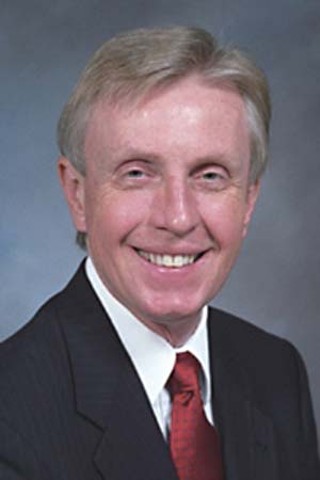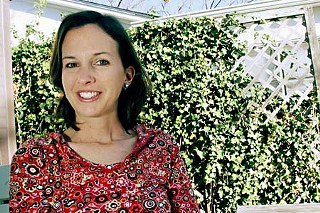Women's Health Care in Political Jeopardy ... Again
Senator wants to reinvent the wheel on women's health care
By Jordan Smith, Fri., Aug. 13, 2010

If Sen. Robert Deuell, R-Greenville, has his way, Texas' Planned Parenthood clinics won't be allowed to contract with the state to provide family planning and preventative health services to thousands of low-income and uninsured women through the successful Women's Health Program, a Medicaid-waiver project; the move would threaten access to preventative health care for many of those women.
In a July 23 letter to Attorney General Greg Abbott, Deuell writes that 12 Planned Parenthood entities have received $5 million in funding from the state's Health and Human Services Commission to provide care as part of the Women's Health Program. And Deuell wants to know if those contracts pass legal muster. At issue is whether a portion of the statute that bans the HHSC from contracting with entities that perform or "promote" abortions or are "affiliates" of groups that do is constitutional. More specifically, Deuell is asking Abbott to decide whether the state can exclude from government funding groups it deems affiliated with abortion providers – even if those groups aren't legally affiliated with any abortion provider.
Confused? Let's back up: After several years of trying to pass a program to expand health care access for poor women, lawmakers in 2005 created the Women's Health Program, a Medicaid-waiver project that provides funding for family planning and preventative health screenings to women ages 18 to 44. These women would otherwise be ineligible for Medicaid but nonetheless lack access to health care. The program was finally passed as a five-year demonstration project after a bit of last-minute tinkering that added language preventing funding from going to any groups affiliated with abortion providers. Ostensibly, that would seem to bar the state's Planned Parenthoods, some of which operate clinics that provide abortion services, from participating in the program. But it didn't turn out that way. In that same year, Sen. Steve Ogden, R-Bryan, sought to ban Planned Parenthood from receiving family planning funds based on the idea that PP's family planning clinics were affiliated with sister clinics that provide abortion care. Ogden's attempt to defund the group led to litigation in which a federal court ruled the state could not block the group from providing government-funded family planning services, though it could refuse to fund an abortion provider. (As it stands, federal money cannot be used to fund abortions.)
The ruling caused the state's 71 Planned Parenthood clinics to deaffiliate themselves from one another: Each now has its own branding, board of directors, and bank account. Importantly, each service provider participating in the Women's Health Program must agree not to provide abortions or affiliate with abortion providers.
But Deuell still isn't satisfied. In his July letter to Abbott, Deuell notes that the 2005 lawsuit concerned whether the state could bar Planned Parenthood from receiving Title X family planning funds but not whether it could block PP from receiving WHP funds, which are administered through Title XIX of the federal Social Security Act – the section that concerns Medicaid funding. According to Deuell, Title XIX "specifically authorizes restrictions on who may participate in a state Medicaid plan." In his letter, Deuell says that when he asked former Health and Human Services Commissioner Albert Hawkins about the exemption, he was told the commission had already imposed as many restrictions as would pass constitutional muster.
In essence, it appears that Deuell's approach here is twofold: Either Title XIX could allow the state to bar Planned Parenthood's participation in the WHP for no stated reason, or perhaps the state could adopt a new definition of "affiliate" – one that would still define Planned Parenthood as an abortion provider despite the work the clinics have done to differentiate themselves from one another.
According to Deuell's chief of staff, Don Forse, the senator wants Abbott to weigh in on the HHSC's legal interpretation and determine whether the "affiliate" provision applies to Title XIX grants. "HHSC has taken the position that the same federal eligibility restrictions that apply to Title X also apply to Title XIX," Forse said in an e-mail. "Senator Deuell does not believe that to be the case and has asked [Abbott] to clarify the matter." (As a matter of law, it does seem that the same provisions do apply to Title XIX. Generally, an entity engaged in a legally protected practice cannot be punished just because another party disagrees with that practice.)
Deuell did not respond directly to questions for this story, but he has said he wants the state's limited pool of women's health funds funneled first to so-called "federally qualified health centers," which would essentially serve as one-stop health care shops, with less emphasis on women's reproductive health issues. "I'm trying to set up a system of family planning that's more complex than giving birth control pills and testing for STDs, which is what Planned Parenthood does," Deuell told a Dallas TV station.
That characterization isn't entirely accurate: Planned Parenthood also provides screenings for cervical and breast cancers, hypertension, and diabetes, among other services. According to Planned Parenthood, its Texas clinics annually provide 300,000 clients with family planning and Women's Health Program services.* In 2009, according to HHSC*, Planned Parenthood served 40% of all clients enrolled in the Women's Health Program, at an average cost of $99.42 per client. The same year, federally qualified health centers served just 7% of WHP participants, at an average cost of $150.23 per client.
While it may be advantageous to designate federally qualified health centers as the primary health care provider for uninsured women in Texas, the reality is that in the years since Deuell's 2005 rider took effect, the state's FQHCs have not been able to use all the funding allocated to them, returning nearly $1.2 million to the state this year alone. Moreover, the FQHCs have spent considerably more to serve far fewer clients than the state's public health providers.
It would likely be detrimental to the existing state structure to remove Planned Parenthood as a major provider in order to steer work to the FQHCs – Deuell's preferred provider. "It is unfortunate that one politician's personal agenda could jeopardize our clients' ability to continue to rely on our health centers to keep them safe and healthy," said Sarah Wheat, vice president of community affairs for Planned Parenthood of the Texas Capital Region, which operates three local clinics, including the Seventh Street clinic – a provider of family planning and health screenings for low-income women and a participant in the Women's Health Program.
Deuell's request comes on the heels of an HHSC report that touts the success of the nascent Women's Health Program. According to the report, in 2008 the WHP reduced Medicaid-paid births by more than 10,000 (more than half of Texas' births are paid for by Medicaid), saving the state more than $40 million – $20 for every $1 invested in the program. The program is up for renewal next year, and some advocates fear that Deuell may be trying to lay groundwork to dismantle a successful model of frontline health care for poor women. "I find it astounding that a legislator that claims to be fiscally conservative would even consider [dismantling] a program that saved Texas ... $40 million last year," says Fran Hagerty, CEO of the Women's Health & Family Planning Association of Texas. "That to me is just ludicrous."
Abbott's decision is expected early next year.
[Editor's note: The original, print version of this story attributed to HHSC the data about the number of clients served by Planned Parenthood's Texas clinics. In fact, the data came to us from Planned Parenthood – having been compiled by women's health advocates using preliminary HHSC numbers – and reflects services that went toward family planning as well as Women’s Health Program clients. In addition, we reported that 41% of the clients served were in the Women's Health Program. HHSC has has since updated that figure to 40%, as reflected above.Got something to say on the subject? Send a letter to the editor.











